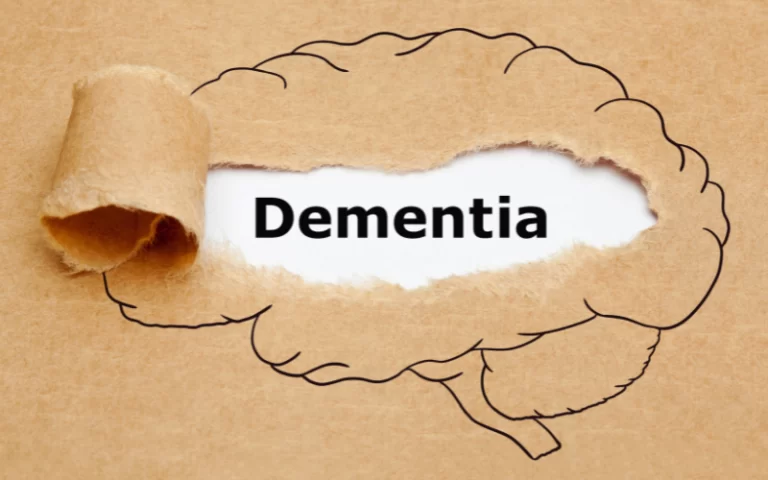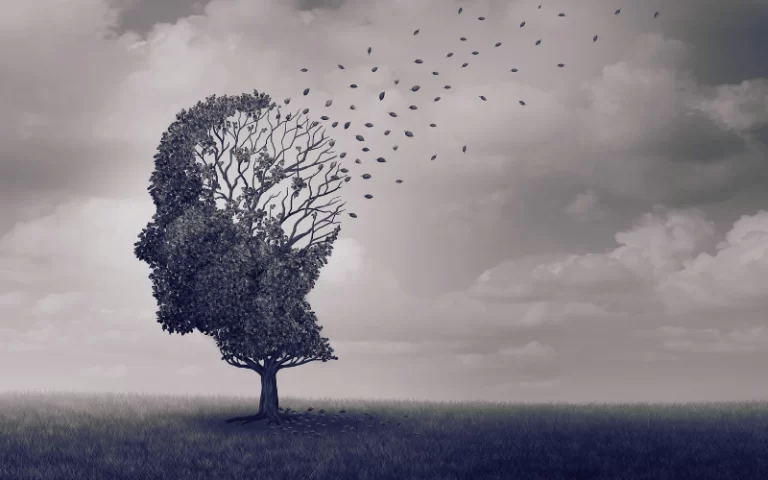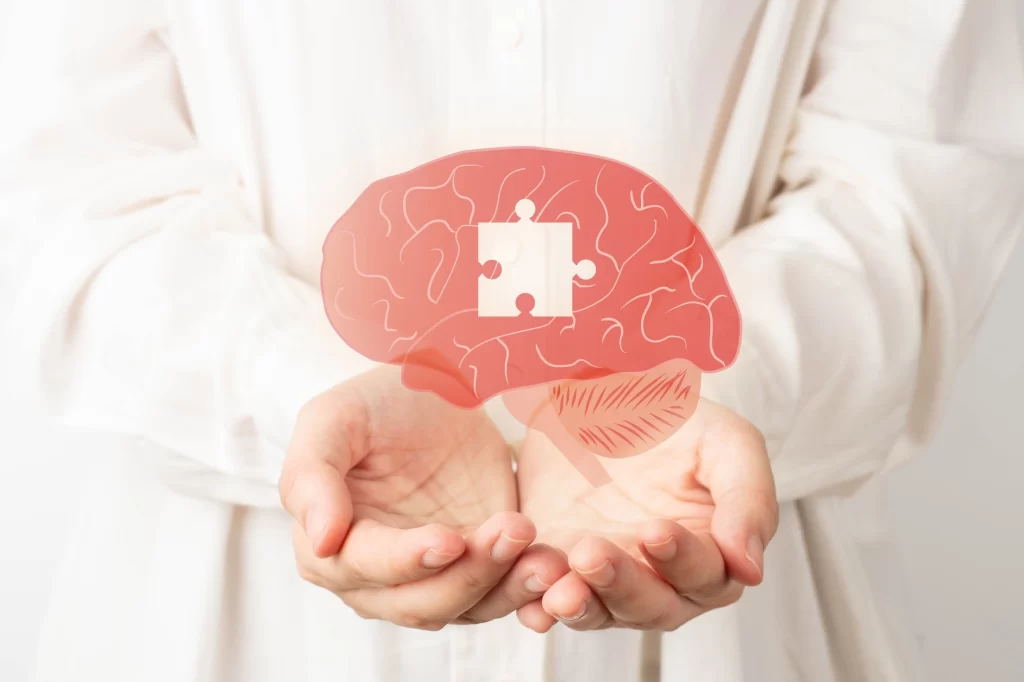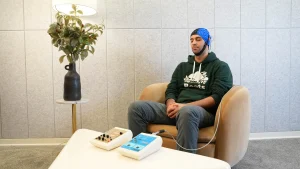Dementia is a complex syndrome characterized by the gradual decline in cognitive function that interferes with daily life. While often associated with aging, dementia is not a normal part of getting older, and it can impact younger adults in rare cases. The condition encompasses a range of symptoms, including memory loss, language difficulties, impaired reasoning, and changes in behavior. As medical research advances, so too do the treatment options, providing new hope for those diagnosed. One innovative solution gaining attention is Neurofeedback, a non-invasive approach that promotes brain health and can support cognitive function. In this blog, we will explore dementia’s symptoms, causes, types, and emerging treatment options to help you navigate this condition with a holistic understanding.
What is Dementia?
Dementia is an umbrella term covering several neurodegenerative disorders that affect the brain’s cognitive abilities. Alzheimer’s disease is the most well-known form of dementia, making up about 60-80% of cases. Other types include vascular dementia, Lewy body dementia, and frontotemporal dementia, each with unique characteristics and progression patterns.
While dementia mainly affects older adults, it is not a natural part of aging. It results from damage to brain cells, impairing their ability to communicate, which in turn affects behavior, emotions, and thinking skills. The condition’s progression and impact vary widely among individuals, making early diagnosis and a tailored treatment plan crucial.

Symptoms of Dementia
The symptoms of dementia can vary depending on the type and stage of the condition. Here are some common symptoms to be aware of:
- Memory Loss – Difficulty remembering recent events, names, or conversations.
- Cognitive Decline – Challenges in reasoning, problem-solving, and organizing daily tasks.
- Language Problems – Struggling to find words, form coherent sentences, or comprehend conversations.
- Mood Changes – Depression, apathy, irritability, or sudden mood swings.
- Behavioral Changes – Wandering, aggression, and repetitive behavior.
- Difficulty with Coordination – Impaired motor skills and difficulty in walking or balancing.
- Confusion – Disorientation in familiar settings, such as getting lost or forgetting routes.
Identifying these symptoms early can lead to prompt intervention, which may help slow the condition’s progression and improve quality of life.

Causes and Risk Factors
Dementia is caused by brain cell damage, typically triggered by several factors. Some of the key contributors include:
- Genetic Factors – Family history can play a role, particularly with Alzheimer’s disease.
- Age – The risk of dementia increases with age, especially for those over 65.
- Cardiovascular Health – High blood pressure, diabetes, smoking, and obesity can damage blood vessels, leading to vascular dementia.
- Lifestyle – Lack of physical activity, poor diet, and social isolation can increase the risk.
- Brain Injury – Head trauma or concussions may increase the likelihood of developing dementia later in life.
- Neurological Disorders – Conditions like Parkinson’s disease and Huntington’s disease can lead to or contribute to dementia.
Understanding the potential causes helps guide preventive strategies and risk reduction efforts, which are essential steps in the fight against dementia.
Myths and Facts About Dementia
Myth #1: Dementia is a Normal Part of Aging
Fact: While memory loss can accompany aging, dementia is a disease and not a standard aspect of growing older. It is caused by specific types of brain cell damage.
Myth #2: Only Memory Loss Defines Dementia
Fact: Dementia affects various cognitive abilities, including language, reasoning, and personality, not just memory.
Myth #3: There’s No Way to Improve Brain Function After Diagnosis
Fact: While there is no cure for dementia, certain treatments, including medications, lifestyle changes, and therapeutic options like Neurofeedback, can help manage symptoms and slow progression.
Myth #4: Dementia Only Affects the Elderly
Fact: While more common in older adults, dementia can also affect people in their 30s, 40s, and 50s. Early-onset dementia, while rarer, presents unique challenges for those diagnosed at a younger age.

Innovative Treatment Options for Dementia
While there is no cure for dementia, there are several treatment approaches aimed at improving quality of life and slowing cognitive decline. Here are some prominent options:
- Medications – Certain medications, such as cholinesterase inhibitors (e.g., Donepezil, Rivastigmine) and NMDA receptor antagonists (e.g., Memantine), are prescribed to help manage symptoms in early and moderate stages. These medications may improve cognitive function or manage behavioral symptoms but don’t alter the underlying disease progression.
- Cognitive Stimulation and Therapy – Engaging in cognitive stimulation therapies, like memory exercises, problem-solving tasks, and structured group activities, can help improve mental agility. These therapies provide mental stimulation, foster social engagement, and can be tailored to the individual’s cognitive level and interests.
- Physical Activity and Diet – Regular physical activity, a balanced diet rich in omega-3 fatty acids, antioxidants, and vitamins, and hydration have shown benefits for brain health. Exercise helps improve blood flow to the brain, reduces stress, and can even promote neurogenesis—the development of new neurons.
- Neurofeedback: An Innovative Approach to Cognitive Support – Neurofeedback, a type of biofeedback, is an emerging tool in the management of dementia. This technique involves monitoring and training the brain’s activity by providing real-time feedback on brainwave patterns. Neurofeedback sessions are guided by an expert, allowing individuals to actively work on improving their mental focus, relaxation, and cognitive resilience. In the case of dementia, Neurofeedback may assist in slowing cognitive decline by targeting specific brain functions. For example, increasing alpha and theta waves in certain brain regions can aid in relaxation and cognitive processing, potentially alleviating some of the behavioral and mood-related symptoms associated with dementia. Although it’s not a cure, Neurofeedback can be a valuable component of a holistic approach to managing dementia, particularly for enhancing attention, mood stability, and memory retention.
- Social Engagement – Maintaining social interactions is vital for cognitive and emotional health. Joining social clubs, participating in group activities, or staying connected with loved ones can boost mental well-being, helping individuals with dementia feel more engaged and valued.

Supportive Strategies for Dementia Patients and Caregivers
For those diagnosed with dementia and their caregivers, creating a supportive environment is essential. Here are some ways to foster positive mental health and well-being:
- Routine and Structure: A structured routine helps reduce confusion, minimize stress, and promote stability.
- Home Modifications: Ensure that the home environment is dementia-friendly by labeling items, using contrasting colors, and creating a safe, comfortable space.
- Respite Care for Caregivers: Dementia care can be physically and emotionally demanding. Taking breaks, seeking support groups, or engaging in self-care are essential for caregiver health.
- Mindfulness and Relaxation: Practices such as meditation and deep breathing can benefit both patients and caregivers, providing moments of calm and focus.
- Education: Learning about dementia helps caregivers and family members understand the changes associated with the condition, enabling them to respond more effectively to the individual’s needs.
Conclusion: Moving Toward a Brighter Future in Dementia Care
Dementia remains a challenging condition for millions worldwide, but advances in research and innovative solutions offer new pathways for management and support. By combining traditional treatment options with newer techniques like Neurofeedback, patients can work toward a more enriching and supported life experience. Understanding dementia’s complexities and embracing compassionate, proactive approaches can make a profound difference in the lives of those affected. For caregivers and family members, creating an environment that fosters connection, empathy, and mental stimulation can empower individuals with dementia to engage with the world around them and preserve their sense of self.
Embracing innovative treatments, staying informed, and supporting one another can help us face the challenges of dementia and work toward brighter outcomes for those affected by this condition.
Elumind Centres for Brain Excellence is an integrated mental health center offering solutions that can help you with your mental/brain health needs. To start your journey, book your FREE 15-MINUTE PHONE CONSULTATION. We are here for you.








